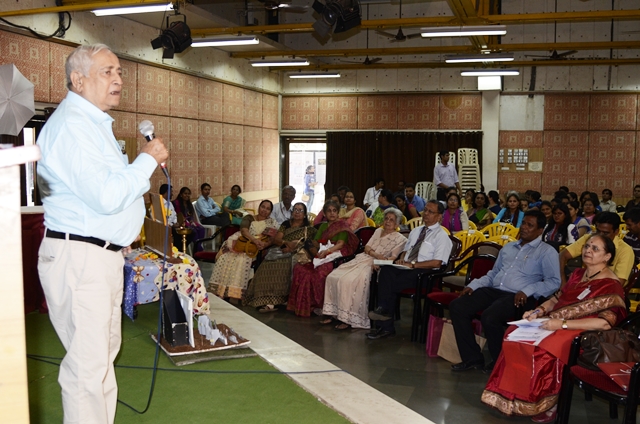16 Feb, 2016
The Maharashtra Forest Department, Salim Ali Centre for Ornithology and Natural History (SACON), the Mangrove Society of India, Here on Project Environment (HOPE) Nature trust, and VPM’s BN Bandodkar College of Science organised a two day international conference on 'Ecosystem Services of Wetlands: 'Ardrabhumi-2016'. The conference, held from 16-17 February 2016 in Thane, was attended by more than 200 academicians, researchers and scientists from different countries such as India, Srilanka and New Zealand.
.jpg)
Poster presentation by students of a Thane based schools

Dr P. A. Azeez (Director, Salim Ali Centre for Ornithology and Natural History) and Dr. Shirish Manchi (Sr. Scientist, SACON) judging the poster presentation
The speakers from diverse disciples emphasised on the importance to move the conservation movement to an implementation level, and to translate this into actual positive steps. They urged the audience to take more active part in raising wetland issues, and stated that it was crucial to monitor researchers in order to make it possible for the government to guide the legal instruments for effective conservation of wetlands.

Key note address was given by Dr. Arvind Untawale (Retired Scientist, National Institute of oceanography; Secretary of Mangrove Society of India)
The conference’s conclusion stressed on the need to understand environmental economics and services of mangrove ecosystem, increased use of technology with strict adherence to the present Coastal Regulatory Zone (CRZ) rules, implementation of large scale marine afforestation programme, and most importantly community participation for protection and conservation of wetlands.
© 2014 IGBP. All Rights Reserved.
Site By: Virtualpages
